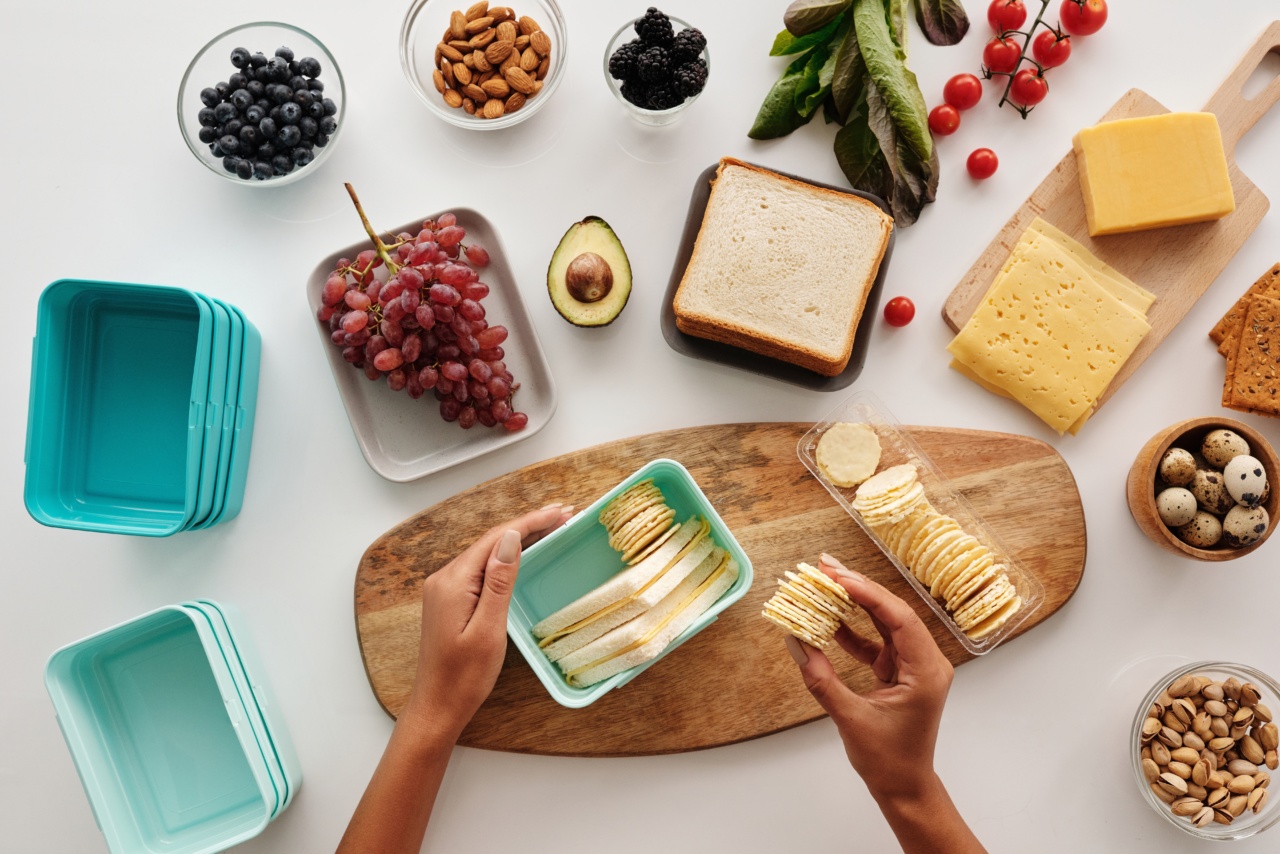Bloating is a common problem that many people experience after meals. It can leave you feeling uncomfortable, sluggish, and unwell. One of the main culprits of bloating is the foods that we eat. Certain foods can cause bloating more than others.
In this article, we will explore the 15 most common bloating foods and their healthy replacements.
1. Beans and Legumes
Beans and legumes are a source of fiber and protein which is great for your gut health. However, they can cause bloating because of high levels of oligosaccharides.
Oligosaccharides are undigested carbohydrates that are fermented by bacteria in the gut causing gas. To prevent bloating, replace beans and legumes with tofu or tempeh. Make sure to also drink plenty of water to aid digestion.
2. Dairy
Dairy products contain lactose which is a sugar that many people can’t digest properly. Lactose intolerance can cause bloating, gas, and diarrhea.
To prevent bloating, replace dairy products with dairy-free alternatives like almond milk, coconut milk, or soy milk which are rich in calcium and vitamin D. There are also many non-dairy sources of calcium like leafy green vegetables, tofu, and fortified plant-based milks.
3. Cruciferous vegetables
Cruciferous vegetables like broccoli, cauliflower, and cabbage are great for your health as they are packed with essential vitamins and minerals. However, they can also cause bloating because of their high fiber content and a sugar called raffinose.
To prevent bloating, replace cruciferous vegetables with leafy greens like spinach, kale, and lettuce which are also packed with essential nutrients.
4. Carbonated drinks
Carbonated drinks like soda, sparkling water, and beer contain carbon dioxide which can cause bloating.
To prevent bloating, replace carbonated drinks with water, tea, or herbal tea which will keep you hydrated and promote digestion without the bubbles.
5. Artificial sweeteners
Artificial sweeteners can cause bloating, diarrhea, and other digestive issues. They mimic the effects of sugar without providing any real nutritional value.
To prevent bloating, replace artificial sweeteners with natural sweeteners like honey, maple syrup, agave nectar, and stevia which are healthier and have a lower glycemic index.
6. Fried foods
Fried foods are high in fat and calories which can cause bloating and indigestion. They can also increase your risk of heart disease, diabetes, and other health problems.
To prevent bloating, replace fried foods with grilled, roasted, or baked foods which are healthier and easier to digest.
7. Processed foods
Processed foods like chips, crackers, and cookies contain high amounts of salt, sugar, and unhealthy fats which can cause bloating and weight gain. They also lack essential vitamins and minerals.
To prevent bloating, replace processed foods with whole foods like fruits, vegetables, and lean proteins which are nutrient-dense and promote digestive health.
8. Onions and garlic
Onions and garlic are great for flavoring but can cause bloating because of high levels of fructans. Fructans are a type of carbohydrate that the body has difficulty breaking down and absorbing.
To prevent bloating, replace onions and garlic with other herbs and spices like ginger, basil, and turmeric which have similar flavor profiles without causing digestive issues.
9. Wheat
Wheat contains gluten which is a protein that many people have difficulty digesting. Gluten sensitivity can cause bloating, diarrhea, and other digestive issues.
To prevent bloating, replace wheat with gluten-free alternatives like quinoa, rice, and corn which are all great sources of carbohydrates.
10. Red meat
Red meat is high in saturated fats which can cause bloating and other digestive issues. It has also been linked to an increased risk of heart disease, diabetes, and other health problems.
To prevent bloating, replace red meat with lean proteins like chicken, fish, tofu, and beans which are easier to digest and promote overall health.
11. Caffeine
Caffeine is a stimulant that can cause bloating and other digestive issues by increasing the production of stomach acid.
To prevent bloating, replace caffeinated drinks like coffee and tea with decaf versions or herbal tea which are caffeine-free and promote relaxation.
12. Alcohol
Alcohol is a diuretic that can cause dehydration, bloating, and other digestive issues. It can also increase your risk of liver disease, cancer, and other health problems.
To prevent bloating, replace alcohol with non-alcoholic drinks like water, sparkling water, or juice which will keep you hydrated and promote digestion.
13. High-sodium foods
High-sodium foods like canned foods, processed meats, and fast food can cause bloating by retaining water in the body.
To prevent bloating, replace high-sodium foods with fresh foods like fruits, vegetables, and lean proteins which are typically lower in sodium and packed with essential nutrients.
14. Apples
Apples are a great source of fiber and vitamins but can cause bloating because of their high content of fructose and sorbitol.
To prevent bloating, replace apples with berries, citrus, or kiwi which are equally nutritious and have lower levels of fructose and sorbitol.
15. Soy
Soy products like soy milk and tofu can cause bloating in some people because of high levels of oligosaccharides. To prevent bloating, replace soy products with nut milk, almond milk, or rice milk which are all great sources of calcium and vitamin D.
Conclusion
Bloating is a common problem that can be caused by various foods. By making simple dietary changes, you can reduce or eliminate bloating while still enjoying a healthy and well-rounded diet.
Remember to stay hydrated and eat a balanced diet that is rich in whole foods, lean proteins, and essential nutrients.


























